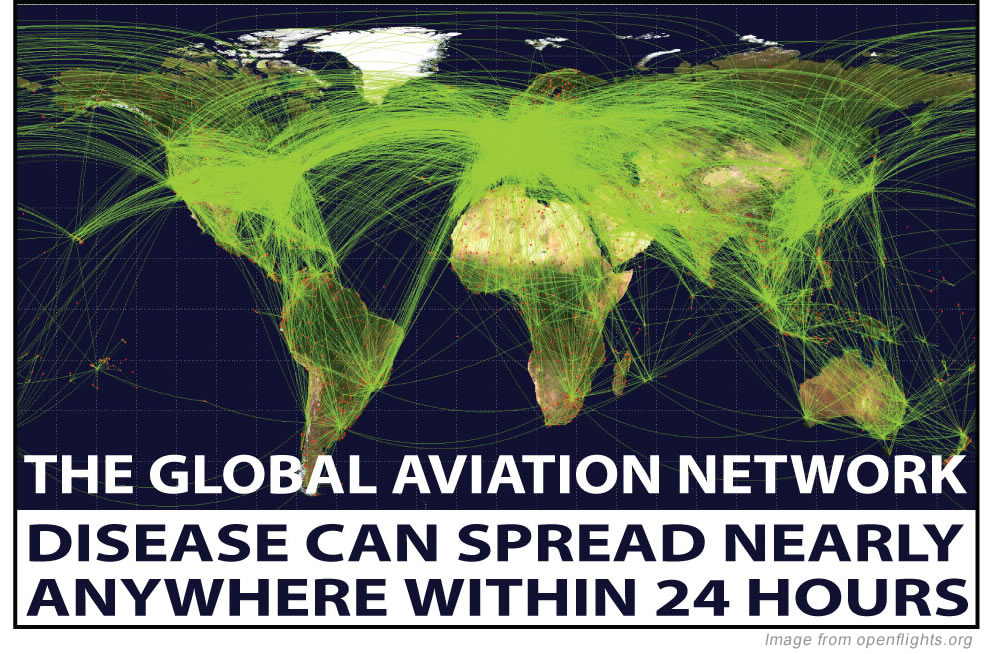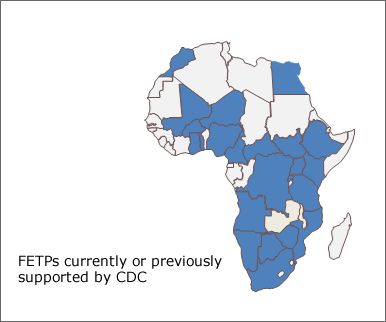CDC & Global Health Security: Partnership in Africa

Global health security is more important now than ever. New diseases are occurring and spreading, drug resistance is rising, and more laboratories are working with dangerous bacteria and viruses. Even though global travel and trade increase these risks, progress is being made to address these challenges through U.S.-Africa partnerships.
Accomplishments have already been made through strong partnerships between the U.S. and African nations, to prevent the spread of diseases. For example, in 2013, the Centers for Disease Control and Prevention (CDC) collaborated with partners in Uganda to strengthen lab systems, improve EOC capacity, and work toward real-time data sharing in health emergencies.
For years, CDC, with support from the Department of State’s Biologic Engagement Program, USAID and the Defense Threat Reduction Agency (DTRA), has worked with many countries across Africa to develop Field Epidemiology Training Programs (FETP). These programs are critical for detecting and responding to health threats and developing solutions so disease outbreaks can be detected quickly and prevented from spreading. To date, CDC has supported 19 FETPs in Africa that have served 23 countries and graduated more than 800 residents, many of whom now hold leadership positions within ministries of health, WHO and other global health organizations. In 2013 and 2014, CDC supported African FETPs have responded to over 100 outbreaks, including polio in Cameroon and Nigeria, monkeypox in the Democratic Republic of the Congo, and Lassa fever in Nigeria. Several programs are sending residents to help with the Ebola response in West Africa. The African FETPs have also investigated anthrax, cholera, dengue, malaria, measles, meningitis and yellow fever, and conducted studies related to HIV, noncommunicable diseases, maternal-child health, and injuries, among other priority health issues.
These are just a few examples of the effective joint projects and programs that have already helped countries protect their citizens from infectious diseases.

Building on past success, CDC partnerships with African nations are continuing and growing. In 2014, CDC is working with DTRA and the ministries of health in Ethiopia, Kenya, South Africa, Tanzania and Uganda to increase global health security activities and improve each country’s ability to prevent, detect and respond to infectious disease threats.
Progress has already made and plans are in place to increase global health security in the future. But more is needed. With the current Ebola outbreak in Guinea, Liberia and Sierra Leone and diseases like cholera and typhoid affecting thousands in Africa, it is more important than ever to improve public health systems through a coordinated surveillance and effective response. To address these challenges, CDC and global partners are continuing to provide technical assistance and support to advance a Global Health Security Agenda (GHSA). The aim of the GHSA is to accelerate progress toward a safe world and to promote global health security as an international priority.